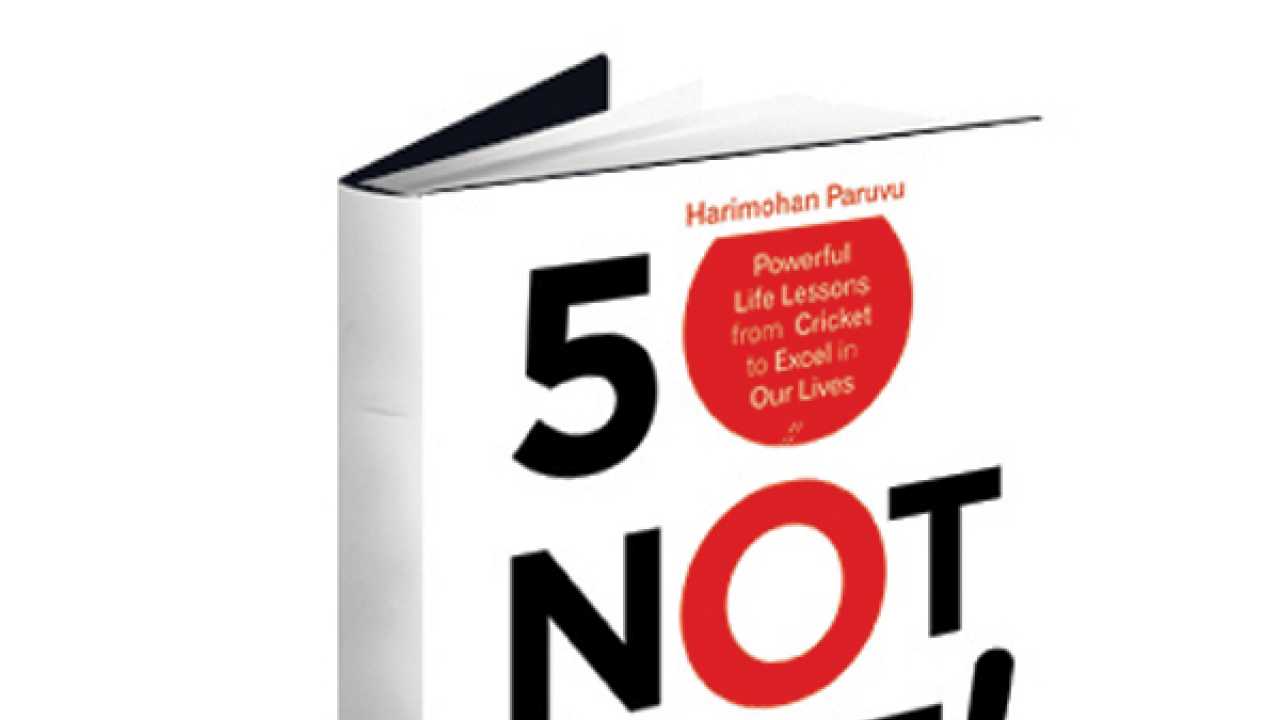
Book: 50 Not Out
Author: Harimohan Paruvu
Publisher: Jaico Publishing House
Pages: 242
Price: 188
Harimohan Paruvu is not new to writing books or telling stories. His last two books, The Men Within: A Cricketing Tale and If You Love Someone... were novels, while his latest, 50 Not Out, is about the lessons learnt from cricket and their use in daily life.
Paruvu has played a decent level of cricket: seven Ranji Trophy matches for Hyderabad in the mid-1980s spread over two seasons and 12 wickets as a medium-pacer. He played two matches in the 1986-87 season when Hyderabad won their second and last Ranji title.
An MBA from the cricket-loving Osmania University, Paruvu achieved more success in the corporate world – as a marketing professional and investment banker – before getting into writing.
Though he met with little success as a first-class cricketer, Paruvu has many stories and anecdotes to narrate and uses his book to share them. It is about his personal experiences in various match situations, be it the Ranji Trophy, varsity and school matches or even his club games in Hyderabad, and how they have helped him in life and in his corporate career.
In short, 50 Not Out is more a self-improvement book with cricket being the focus. You could also call it personality development. Cricketers, especially international stars, are looked up to as role models. What they do is often imitated by their fans, especially the younger lot. Their success stories are an inspiration to many.
The 242-page book divided into 50 short chapters – Courage, Aggression, Strategy, Perseverance, Honesty, Concentration, Creativity, Targets, Empowerment and Partnerships, to mention a few – keeps the reader engaged.
The author tries to offer solutions to problems faced in day-to-day life and also in the corporate world. He has also used cricketing strategies, principles and tactics while finding solutions to corporate situations. He provides instances from cricketing stories that could be used in similar situations in daily life.
Each chapter keeps the reader engrossed, starting with an inspirational quote and ending with an exercise, if you must do it. Paruvu has used cricket, the most popular sport in the country and by which many cricketers swear by, as a means. Cricket is the sport Paruvu has played and has rubbed shoulders with, with some of the greats of the game emerging from Hyderabad.
The cricketers have succeeded using the strategies mentioned in the book. They may or may not work every time for everyone, but there is nothing wrong in referring to this book.
This book also acts as a cricket coaching manual sans photos or illustrations. One-liners at the start of each chapter such as "Keep your head down, take it session by session", "Know your basics well" and "Play with a straight bat" could work well for cricketers. Points like these need to be revisited again and again for cricketers to maintain their consistency. It's not that people are unaware of these topics, but Paruvu has given gentle reminders through the lessons learnt from cricket.
A careful reading of 50 Not Out and verification of facts would have helped avoid minor mistakes in the otherwise well-written book. For instance, Paruvu speaks of the famous Indian spin-quartet in the chapter Strategy and writes: "At about the same time in the 1970s, the Indian team used four spinners in tandem." In fact, BS Chandrasekhar, EAS Prasanna, S. Venkataraghavan and Bishan Bedi played together in only one Test against England in Edgbaston in 1967. And India lost.
In the chapter, Perseverance, Paruvu writes about the 1986 India-Pakistan Australasia Cup final in Sharjah, famous for Javed Miandad's last-ball six. He has mentioned that India's total was boosted by "centurion Sunil Gavaskar". The Little Master's lone century in ODIs came in the 1987 World Cup against New Zealand in Nagpur, whereas in this particular final, Gavaskar top-scored for India with 92.
These errors may have been by oversight, and Paruvu will only get better in his next book. He writes in the Diligence chapter, "As a rookie writer, I'd find nothing more irritating than readers who comment on spelling mistakes and punctuation and not on the story. Why are they so bothered about the small details?, I'd think. But after reading other amateur works, I realised that the big picture is lost if one does not take care of the small details."
On the whole, 50 Not Out needs to be on your bookshelf as a ready reckoner to situations you may find yourself in.